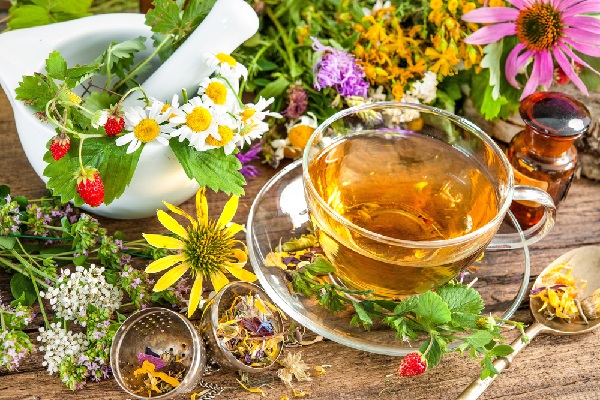TREATMENT OF CYSTITIS.
Cystitis is a disease that affects every fourth woman. Because the urethra in women is much wider and shorter than in men, it is easier for infections to enter the bladder.
Frequent urination, acute pain, and sometimes bleeding — these are the main symptoms of cystitis. They occur due to inflammation of the lining of the bladder, which, in turn, can be caused by bacterial infections or non-bacterial causes, such as chemical irritation.
It is important to diagnose and treat acute cystitis in a timely manner in order to prevent the transition of the disease to a chronic stage, which can lead to pyelonephritis.
They treat cystitis in a complex way, using antibacterial, anti-inflammatory drugs, as well as agents that strengthen the immune system. An effective factor in the complex fight against the disease is herbal medicine.
HOW DO HERBALS HELP OVERCOME CYSTITIS?
Medicinal plants have an anti-inflammatory effect, and they also increase urine output: the amount of urine that is formed over a certain period of time. This is very important, as the causative agents of cystitis must be “flushed out” of the bladder. In addition, herbal treatment reduces pain by helping to relax the smooth muscles of the bladder and urethra.
A serious advantage of herbal remedies is that they enhance the effect of basic drugs and reduce the severity of their side effects, as well as help to normalize body temperature.
Phytopreparations, rich in vitamins and microelements, strengthen the immune system; they also have a mild laxative effect, thereby reducing the general intoxication of the body.
HERBS THAT EFFECTIVELY TREAT CYSTITIS LIVER LEAVES
Perhaps the most common folk remedy for the treatment of cystitis is lingonberry. It has pronounced antiseptic and diuretic properties due to the compound arbutin. The antiseptic effect of the plant is also enhanced by tannic compounds and ursolic acid. In addition, lingonberry leaves contain flavonoids and vitamins. The beneficial substances that make up the plant provide anti-inflammatory, capillary-strengthening and astringent effects.
Please note: normally, human urine has a slightly acidic, acidic or neutral reaction. For the effective action of lingonberry preparations, you need to create an alkaline environment: for example, supplement the diet with alkaline mineral water, vegetables and fruits.
BEAST
The herb St. John’s wort has an antibacterial effect thanks to the substance hypericin: that is why the plant has the potential in the treatment of infectious diseases of the genitourinary sphere.
In addition, St. John’s wort stimulates the excretory activity of the glands, improves blood circulation and relieves spasms of blood vessels.
In herbal medicine of cystitis, St. John’s wort is usually combined with plants that have strong diuretic properties: this is the already mentioned lingonberry, heather, bearberry.
DOG-ROSE FRUIT
Rosehip berries are another natural diuretic that people often use for diseases of the kidneys and urinary tract. Rosehip is a storehouse of vitamins and macronutrients: it contains iron, calcium, magnesium, vitamins A, K, E, P, PP, B vitamins, and is a record holder in terms of the amount of vitamin C.
Rosehip not only quickly removes fluid from the body, but also stimulates the immune system, helping it to destroy the bacteria that caused the disease. For this reason, rosehip tea is drunk to prevent diseases of the urinary system, as well as for chronic cystitis — so that painful symptoms do not return.
CHERADA
Another effective remedy — and not only for cystitis, but also for pyelonephritis and urethritis — is a series. It contains flavonoids, essential oil, tannins and combines anti-inflammatory and diuretic properties.
For effective treatment of cystitis, medicinal plants, as a rule, are combined into collections: in this way the herbs enhance and complement each other’s action.

1 Comment
Add a Comment